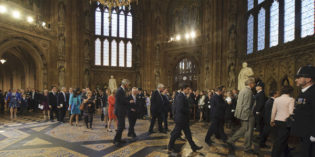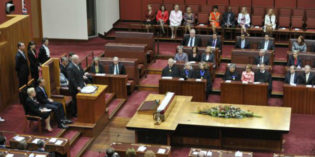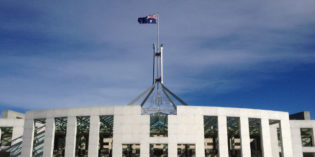Parliament

The government’s handling of the Intelligence and Security Committee’s detainee reports reveals worrying tensions between them
The Parliamentary Intelligence and Security Committee (ISC) is due to publish two reports on the UK’s treatment of detainees. Andrew Defty explains how leaks ahead of their publication are part of a concerning breakdown in the relationship between government and the committee, which has implications for the proper democratic oversight of the UK’s intelligence agencies.

How the Treasury Committee has developed since 1997
A close analysis of the Treasury Committee’s recent history shows how it has become a successful example of a House of Commons select committee. It has developed a broad remit for scrutinising high-profile figures and institutions in the financial sector beyond the Treasury department, particularly in the aftermath of the 2008 financial crisis, writes Saskia Rombach.

Why the Grieve amendment to the EU Withdrawal Bill is not unconstitutional
On Wednesday, 20 June, the House of Commons will consider again amendments to the EU Withdrawal Bill intended to give Parliament a meaningful vote on the Brexit negotiations, particularly in the case of no deal being agreed. Ben Margulies considers the constitutional implications of these highly contentious proposals.

Reproducing the political class: how socialisation makes MPs more loyal to their parties
What are the drivers of party discipline in the House of Commons? Evidence from survey data suggests that the socialisation process of new MPs as they learn from colleagues is a key factor in their subsequent loyalty, writes Nicholas Dickinson.

Out from the shadows: the case for external oversight of UK Special Forces
While the UK government maintains a strict ‘no comment’ policy about the country’s special forces, allied countries, including the US, allow for parliamentary oversight of their covert military operations. Liam Walpole argues that the UK’s approach lacks democratic accountability and prevents proper evaluation of the military effectiveness of special forces. Options for reform include expanding the Intelligence and Security Committee’s remit to cover special forces.

How majoritarianism endures in the structures of the UK’s devolved institutions
Scotland and Wales’ devolved political institutions, elected under proportional Additional Member electoral systems, were intended to produce a more consensual political culture. However, writes Felicity Matthews, although their electoral rules have increased the proportionality of representation, the structures of the Scottish Parliament and National Assembly for Wales have meant that a more consensual approach to policy-making has been more limited than might have been expected.

Partisanship and the gender gap: support for gender quotas in Australia
The disparity in the gender gap in parliament between the Australian Labor Party and Liberal Party has grown over time. Katrine Beauregard assesses what measures to increase the representation of women in parliament the public – and political partisans – would support.

Does it really matter if we call Australian politics ‘semi-parliamentary’?
Australia’s ‘hybrid’ executive-legislative relationship, whereby the two chambers of parliament have distinct and separate powers, has been described in numerous ways, including ‘semi-parliamentarism’. In this, the final of three pieces on the subject, Marija Taflaga argues that the terminology matters, and the term helps both politicians and political scientists clarify how the Australian system works, and understand the political incentives and behaviours it produces.

The development of semi-parliamentarism in Australia
Steffen Ganghof has described the Australian system at both national and state levels as ‘semi-parliamentarian’ since governments do not need to maintain the confidence of the upper chambers to survive. Rodney Smith traces how Australia’s upper houses have evolved and established distinct, strengthened mechanisms of executive scrutiny.

Semi-parliamentary government, in Australia and beyond
Australia has developed a unique semi-parliamentary system of government, writes Steffen Ganghof, which assigns different functions to the two equally legitimate but differently constituted houses of parliament. While not an ideal system, it offers an under-appreciated alternative to competing models of presidential and parliamentary democracy.


 Democratic Audit's core funding is provided by the Joseph Rowntree Charitable Trust. Additional funding is provided by the London School of Economics.
Democratic Audit's core funding is provided by the Joseph Rowntree Charitable Trust. Additional funding is provided by the London School of Economics.